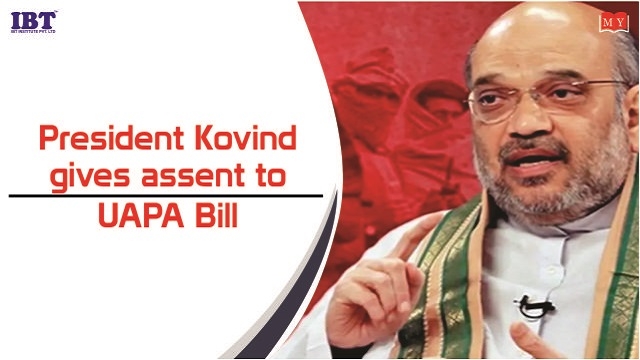
Law allows a person to be called a terrorist without FIR, chargesheet or trial: Chidambaram
After a heated debate, the Rajya Sabha approved crucial amendments to the Unlawful Activities (Prevention) Act, allowing the Centre and States to designate individuals as terrorists and seize their property.Opposition members argued that the amendments were ‘unconstitutional’ and violate an individual’s right to liberty.
The Unlawful Activities (Prevention) Amendment Bill that seeks to amend the Unlawful Activities (Prevention) Act, 1967, was passed by the Rajya Sabha with 147 votes in favour and 42 against. The Congress and the BSP supported the Bill. The House earlier rejected the opposition-sponsored motion to send the amendment to a select committee with 104 votes against and 85 in favour. The Congress had voted in favour of this motion. The Lok Sabha had passed the Bill on July 24.
Replying to the debate, Home Minister Amit Shah said the law will help agencies remain ‘four steps ahead of terrorists’. He alleged that the Congress misused it to frame people linked to a particular religion — in the context of Samjhauta and Mecca Masjid cases, where the accused have been acquitted by court.
- Who may commit terrorism: Under the Act, the central government may designate an organisation as a terrorist organisation if it: (i) commits or participates in acts of terrorism, (ii) prepares for terrorism, (iii) promotes terrorism, or (iv) is otherwise involved in terrorism. The Bill additionally empowers the government to designate individuals as terrorists on the same grounds.
- Approval for seizure of property by NIA: Under the Act, an investigating officer is required to obtain the prior approval of the Director General of Police to seize properties that may be connected with terrorism. The Bill adds that if the investigation is conducted by an officer of the National Investigation Agency (NIA), the approval of the Director General of NIA would be required for seizure of such property.
- Investigation by NIA: Under the Act, investigation of cases may be conducted by officers of the rank of Deputy Superintendent or Assistant Commissioner of Police or above. The Bill additionally empowers the officers of the NIA, of the rank of Inspector or above, to investigate cases.
- Insertion to schedule of treaties: The Act defines terrorist acts to include acts committed within the scope of any of the treaties listed in a schedule to the Act. The Schedule lists nine treaties, including the Convention for the Suppression of Terrorist Bombings (1997), and the Convention against Taking of Hostages (1979). The Bill adds another treaty to the list. This is the International Convention for Suppression of Acts of Nuclear Terrorism (2005).
 4.5/5
4.5/5








